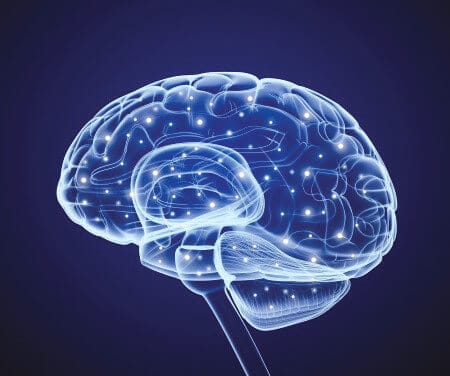Listening to a traffic report before leaving for work or school may be part of your daily routine. But how does your brain sort through the entire report and only recall the fastest route to your destination, and then forget that information the next day when listening to a new report?
Avery Rizio, a Penn State postdoc in the Language and Aging Lab in the Center for Language Science, and Nancy Dennis, associate professor of psychology, recently published research in the journal Cognitive Neuroscience that demonstrates how forgetting unimportant or outdated information is not accidental, but is an active neurological process.
“Our research shows that even when you try to forget information, some of it may be retained, but you will need to work harder to recall this information. This is reflected by increased activity in areas of the brain that are associated with effort and difficult tasks,” Rizio explained.
The study tested 24 participants between the ages of 18 and 24, all healthy, right-handed, and native English speakers, with no history of neurological or psychiatric episodes. “Participants were asked to read 360 words. One hundred words were randomly marked as to-be-remembered, another 100 were marked as to-be-forgotten, and another 160 new words were presented during the recognition test that took place later,” Rizio said.
Rizio worked with Penn State’s Social, Life, and Engineering Science Center(SLEIC) to use a functional MRI scanner during testing. While in the scanner, participants were randomly shown the to-be-remembered words and the to-be-forgotten words, one at a time. Each word remained on the screen for several seconds. After each word disappeared from the screen, participants were shown either green pound signs, indicating they should try to remember the word they just saw, or red pound signs, indicating they should try to forget that word.
After viewing all the test words and then performing a 10-minute task meant to interfere with memory retention, participants took part in a retrieval exercise to find out whether they remembered seeing the words in the first portion of the experiment. They returned to the fMRI scanner and were randomly shown all of the previous words, in a different order than before, along with the 160 new words mixed in. “We stressed to the participants that their response should not depend on whether the word had been marked to be remembered or forgotten during the study phase, but instead indicate if they thought word was something they had seen before or was new,” said Rizio.
Scanner data showed increased activity in the prefrontal cortex when participants recollected items they had previously attempted to forget. The prefrontal cortex plays an important part in the retrieval of long-term memories, and is also more active when retrieval is particularly difficult.
“For the first time, we were able to show greater effort was utilized when participants were trying to retrieve items they had tried to forget,” Rizio noted.
Their work, combined with previous research, indicates that attempting to forget new information involves inhibition of encoding, the crucial first step in creating a new memory, and that such inhibition persists even if the new item is ultimately remembered rather than forgotten. “Inhibition allows us to forget unimportant information,” Dennis explained. “It seems to have a lasting effect on memory processing and makes the ultimate recollection of these items much more difficult.”
“I felt we used an interesting paradigm, as we asked individuals to begin encoding new words [through the act of reading them], but then told them to forget them,” Rizio said. “Participants can successfully forget information using this method, but even when forgetting fails, recollection of these items takes more effort than recollection of items that they were not asked to forget.”
Rizio began her work as a graduate student at Penn State and has served as lead author on three papers focused on the neural and behavioral effects of directed forgetting.
“I found that there wasn’t a lot of research in this area and I was interested in the idea of how we are constantly presented with information that may be important at the time, but eventually becomes unimportant,” said Rizio. “How does our brain select only relevant information to encode in the face of competing information? Ultimately, if we can effectively purge old information, we can more successfully navigate our environments.”
If our reporting has informed or inspired you, please consider making a donation. Every contribution, no matter the size, empowers us to continue delivering accurate, engaging, and trustworthy science and medical news. Independent journalism requires time, effort, and resources—your support ensures we can keep uncovering the stories that matter most to you.
Join us in making knowledge accessible and impactful. Thank you for standing with us!

